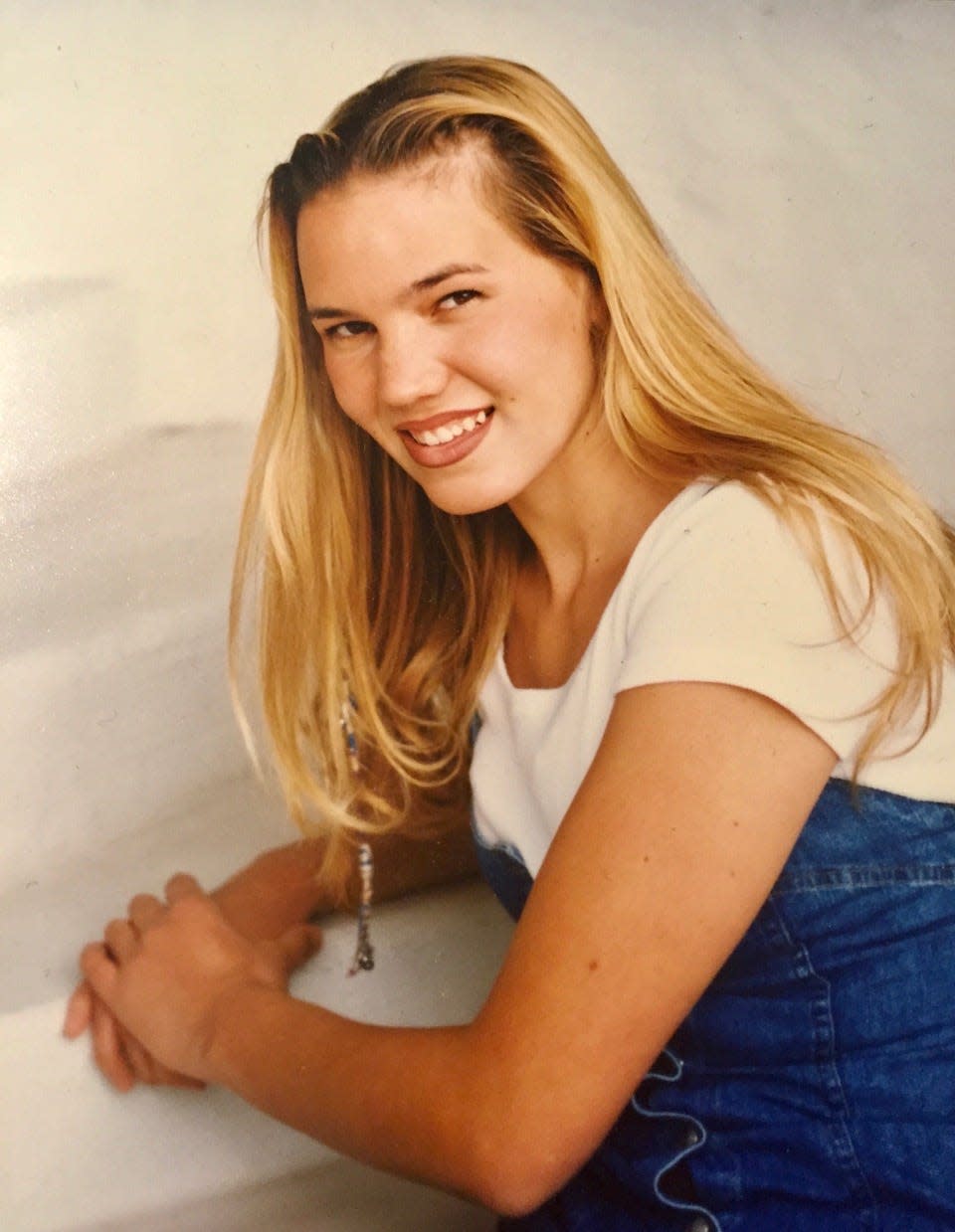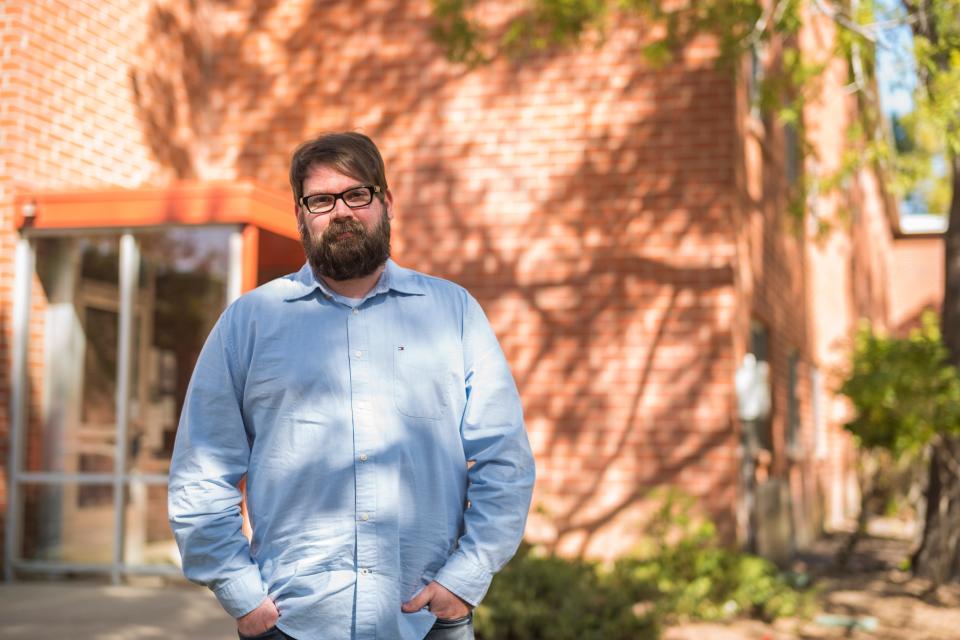A missing California college student's case had gone cold. Then came a podcast.
More than two decades after a California college student went missing from campus, a budding podcaster named Chris Lambert decided to look into the case.
His podcast, “Your Own Backyard,” began somewhat tentatively in September 2019, when Lambert admitted he really didn’t know what he was doing.
Now two men are about to go on trial in connection with the disappearance of Kristin Smart, 19, and police give much of the credit to “Your Own Backyard.”
Driven largely by an obsession with true crime in the USA, a growing number of podcasts are produced by everyday citizens helping generate interest in decades-old crimes.
“For cold-case investigators, it can be a godsend,” said Chris McDonough, director of Law Enforcement Relationships at the Cold Case Foundation.
Text with the USA TODAY newsroom about the day’s biggest stories. Sign up for our subscriber-only texting experience.
Arrests out of 'Your Own Backyard'

"Your Own Backyard" was certainly a godsend for Denise and Stan Smart, who never gave up hope that their oldest daughter would be found and her killer brought to justice.
Kristin Smart, a bright, adventurous communication studies freshman at California Polytechnic State University in San Luis Obispo, went missing May 25, 1996.
The last person to see her alive, fellow freshman Paul Flores, was arrested in April 2021 and was charged with her murder. His father, Ruben, is charged with accessory to murder after the fact, accused of helping his son get rid of Kristin's body.
They pleaded not guilty. Their attorneys are barred from speaking to members of the media because of a gag order.
Lambert did not fathom that his podcast would help lead to arrests in the case.
“At least once a day I asked myself, ‘What are you doing?’” Lambert said in the podcast's first episode. "Since I'm not an investigator, there's really not much help I can provide."

He set a simple goal for himself.
"I'm going to try to learn everything I can about Kristin Smart and what happened to her," he said. "And the only way that I know how, by talking to people."
Over the course of 10 episodes, Lambert interviewed Kristin's parents, her best friends, her college roommate who was with her the night she disappeared and women who knew Paul Flores.
When San Luis Obispo County Sheriff Ian Parkinson announced the arrest of Flores and his father, he made sure to give Lambert some of the credit.
"In 2019, (we) interviewed several witnesses that had not been previously interviewed," Parkinson said. "Some of that information came to light through the podcast ... that was produced and eventually led to our interviewing that witness."
'Crowdsource new leads'
Lambert could not be reached for comment this week about the impact of his podcast, but told The Associated Press last year that he was motivated to look into Kristin's case after frequently driving by a billboard about her disappearance.
“I thought I’d give it a shot and see if I could get a few people talking,” Lambert said. “All I have to do is get over my shyness and start calling these people out of the blue and start asking really personal questions.”
That simple technique is highly effective, said Michael Arntfield, a professor and criminologist with the Cold Case Society at Canada's Western University and author of "How to Solve A Cold Case: And Everything Else You Wanted To Know About Catching Killers."
"You can crowdsource new leads," he said. "Frequently, people who know something at the time won't come forward. They may have been aiding the suspect or know something more than they let on, but with the passage of time, those affiliations and loyalties often erode. Someone may not have thought about it for 10 or 20 years, and when the case comes back into the public eye, they're motivated to come forward finally."
Though some podcasts have helped police, others can hinder them, Arntfield and McDonough said.
A bad podcast done quickly and steeped in rumor and conjecture can create "a tidal wave of misinformation" that leads police down rabbit holes.
"It's a time suck," said McDonough, who was a homicide detective for 13 years in Southern California. "The most valuable tool to an investigator is time."
Police, who can be reluctant to accept unfamiliar tools, should still embrace the medium, he said, noting that some police in the 1980s were slow to embrace DNA testing.
"There's a possessiveness, an ego, that if you let it take over, then the case will not get solved," he said. "But if you're trying to generate leads, then you need to work with the community to generate those leads. And part of embracing that is these podcasts."
Jury selection in the trial of Paul and Ruben Flores begins July 6, and the trial is likely to last months.
Kristin was declared dead in 2002. Her body has not been found.
More coverage from USA TODAY
‘You don’t give up on family’: Adoptive parents’ quest to help foster daughter meets tragic end
Great replacement theory: Month before Buffalo shooting, poll finds, 7 in 10 Republicans believed in 'great replacement' ideas
‘Saddest fact’ on Title IX anniversary: Schools say women well represented in sports. It’s not even close.
Uvalde shooting: School district chief Pete Arredondo arrived at shooting without radio, sources say
Univ. of Phoenix: University's president resigns suddenly (and quietly) amid federal inquiry
This article originally appeared on USA TODAY: How 'Your Own Backyard' podcast led to arrests in Kristin Smart murder

